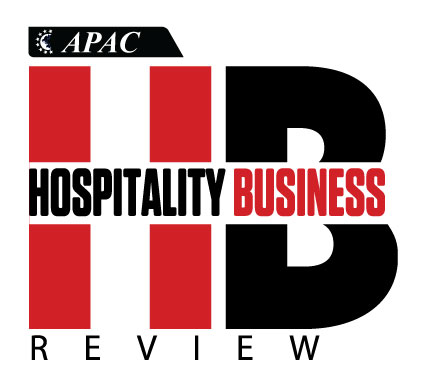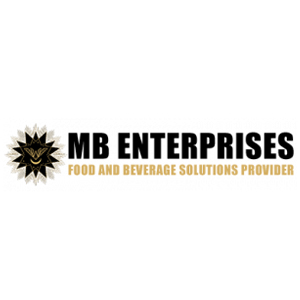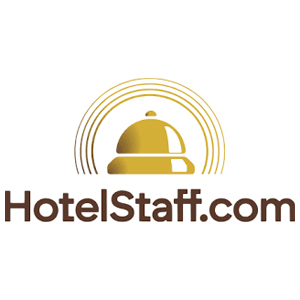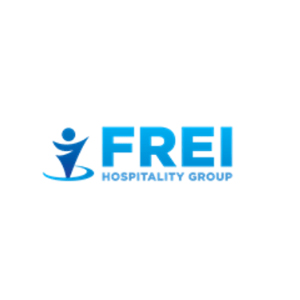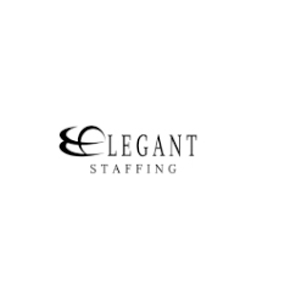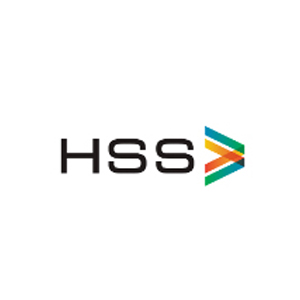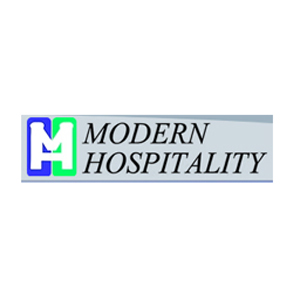\\\\ Top Hospitality Staffing Agencies \\\\
\\\\\\\\\\ Top Hospitality Staffing Agencies \\\\\\\\\\
-
SMS Group of Companies
SMS Group of Companies transforms hospitality staffing with a hands-on, personalized approach. With over 25 years of experience, the company recruits, trains, and supports skilled professionals, ensuring exceptional service, reliable attendance, and memorable guest experiences while empowering employees to grow and thrive.
-
MB Enterprises
MB Enterprises is a U.S.-based, full-service event solutions company offering planning, catering, staffing and consulting. The company delivers personalized, multicultural experiences for weddings, corporate functions and social events. What sets it apart is its inclusive approach, attention to detail and commitment to exceeding client expectations, creating memorable celebrations.
-
Xclusive Services
Xclusive Services is a hospitality staffing firm delivering specialized, high-quality staff for hotels, resorts and convention centers across the United States. It also offers janitorial services and direct hires support. Combining deep industry expertise with a people-first, service-obsessed mindset has made it a trusted full-service staffing partner for top-tier hospitality brands.
-
HotelStaff.com
HotelStaff.com delivers precision hospitality staffing for top hotels and resorts nationwide, from Maine to Hawaii. Specializing in culture-fit professionals who elevate service, protect reputations and drive five-star reviews, it combines human touch with rigorous vetting, ensuring every guest interaction builds trust, warmth and lasting brand value.
-
FREI Hospitality Group
FREI Hospitality Group provides hotel staffing solutions with a focus on back-of-house roles, including housekeeping, kitchen, restaurant, events, and maintenance. With local supervisors in every market, the company ensures fast and personalized service. Founded by Fernando Freire, it now operates across multiple U.S. states and serves over 130 hotel clients.
-
HotelPro
HotelPro delivers hospitality-exclusive staffing and operational support that stabilizes teams, reduces risk and elevates performance. Built on Heart and Hustle, HotelPro partners with hotels nationwide to protect brand standards and power exceptional guest experiences.
-
Elegant Staffing
Elegant Staffing, a trusted name in hospitality staffing for over 14 years, delivers top-tier talent for back-of-house, front-of-house and custodial roles. Serving Virginia, Maryland and Washington, D.C., it seamlessly connects professionals with prestigious establishments, including Fortune 500 companies, ensuring excellence in service and hospitality.
-
Heart of the House
Heart of the House Hospitality is an employee-owned hospitality staffing company that was founded in 2006 and has its headquarters located in Indianapolis, Indiana. It provides managed housekeeping, hotel staffing, food and beverage staffing and event staffing services across multiple U.S. cities, focusing on enhancing guest satisfaction.
-
HSS Hospitality Solutions
HSS Hospitality Solutions is the driving force behind Arizona’s thriving hospitality sector, seamlessly connecting top-tier talent with hotels, resorts and event spaces. From housekeeping to culinary and facility management, HSS ensures businesses thrive with skilled professionals while empowering job seekers with dynamic career opportunities in the industry.
-
Modern Hospitality
Modern Hospitality, Inc. is a leading hospitality staffing provider with over 30 years of experience, offering tailored workforce solutions for hotels, resorts and commercial properties nationwide. Partnering with top brands like Marriott, Ritz-Carlton and Hyatt, MHI delivers skilled professionals in housekeeping, food & beverage and janitorial services at competitive rates.
More in News
Revenue-Boosting Hotel Marketing Trends You Should Know
Friday, January 30, 2026
Fremont, CA: The hotel industry has experienced significant transformations. Performance fluctuations have varied by market, year, and season. The situation has stabilized. The industry has recognized new demand periods, allowing us to utilize marketing strategies to enhance revenue through three essential components: consistency, planning, and impact. Consistency plays a crucial role in marketing efforts. Ensuring uniformity in branding, imagery, and messaging across all platforms fosters trust among previous and current guests. Timely and relevant communication keeps your hotel at the forefront of potential guests' minds. It is equally vital to target the appropriate customer at the right moment consistently. Ongoing exposure cultivates brand recognition, trust, and loyalty, increasing the likelihood that guests will consider your hotel when making reservations. Digital advertising is one of the most effective methods to achieve this goal. Digital Marketing: In the contemporary digital landscape, marketing is essential in influencing customer experiences. Hotels must engage with potential guests during the initial phase of their travel planning—when they contemplate their destination and timing—by connecting with tech-savvy travelers at this critical juncture. To effectively shape consumer behavior and enhance revenue, hotels can utilize various technological advancements, including Mobile Optimization and Virtual Reality (VR) Tours. Digital Paid Advertising: The subsequent phase in digital marketing involves digital paid advertising, explicitly focusing on targeted advertising and personalization. Digital marketing empowers hotels to develop advertising campaigns tailored to specific demographics, consumer behaviors, and interests. This precision guarantees that appropriate messages are delivered to the relevant audience segments, enhancing the likelihood of converting prospective guests or generating sales. Achieving this effectively requires a comprehensive understanding of the audience, particularly the hotel’s primary feeder markets. Personalization and search engine optimization are the two different methods of digital paid advertising. Leveraging Social Media and Influencer Marketing: Social media platforms have emerged as significant marketing assets for hotels. They provide avenues for direct interaction with former, present, and prospective guests, highlight distinctive services, and foster brand loyalty. Hotels can capitalize on social media and influencer marketing to enhance revenue by utilizing Visual Storytelling, User-Generated Content (UGC), and Influencer Partnerships. Sustainability: Sustainability has surfaced as a paramount concern for travelers worldwide. Establishments that implement environmentally responsible practices can appeal to eco-conscious patrons and distinguish themselves in a competitive landscape by highlighting their dedication to sustainable initiatives. Among the various strategies for sustainable tourism are Green Certifications, Eco-Friendly Amenities, and Community Engagement.
Innovative Approaches to Hospitality Marketing
Thursday, January 29, 2026
FREMONT, CA: Marketing in the hospitality industry is the practice of advertising businesses to attract new customers. Of course, some subcategories, such as restaurant marketing, hotel marketing, and theme park marketing, will have more productive techniques than others. However, there is significant overlap across all of these strategies, and many of the ideas are consistent across the board. As a result, video marketing, user-generated content, and customer-centric techniques will be included in any excellent hospitality marketing strategy and tactics employed by those organizations. Because the hospitality industry emphasizes the customer's experience, hotels, motels, restaurants, resorts, and theme parks require customer loyalty and social proof to thrive. Some of the important hospitality marketing trends are elaborated below: Chatbots: Chatbots are one of the most recent marketing trends across all marketing sectors, including the hospitality industry. These chatbots can be used to provide an additional level of engagement between brands and their customers by assisting them in making a booking or reservation and answering their inquiries. Furthermore, this has the added benefit of making customers feel acknowledged and important, which improves the entire customer experience. User-generated content: As with chatbots, this is rapidly gaining popularity in marketing strategies and is now a common approach utilized by every hospitality marketing agency. And, when used effectively, user-generated content can greatly assist businesses increase brand awareness and reputation. User-generated content (UGC) is content made by internet users and shared with others. It can take the form of endorsements, comments, forums, blog posts, social publishing, etc. A potential customer looking for information about the brand online will most likely check customer reviews on other websites or social media platforms before making a decision. One excellent method is encouraging visitors to post about their experiences on social media. To accomplish this, conducting contests, generating brand hashtags, or arranging for photo opportunities at the hotel is necessary. Augmented reality: It is one of the most intriguing concepts in hospitality marketing. This computer-related trend affects a person's perspective of their immediate surroundings. Hotels, for example, can boost online room sales by improving their features with augmented reality. Brands may utilize augmented worlds to entertain their guests in various ways, such as displaying virtual copies of their favorite celebrities while they stay at their hotel. In contrast, various practical solutions are available to enhance the customer experience, such as sending virtual keys to visitors' smartphones.
The Influence of Mattress Engineering on the Quality of Guest Experience
Wednesday, January 28, 2026
Fremont, CA: In today’s hospitality industry, mattresses have become essential to the guest experience rather than simple furnishings. As guests seek sleep tourism and holistic wellness, manufacturers now offer specialized, high-performance sleep systems. How Are Hotel Mattresses Engineered for Universal Comfort? Unlike residential mattresses tailored to individual preferences, hotel mattresses must provide consistent comfort for a wide range of body types, weights, and sleep positions. Manufacturers achieve this by using a medium-firm design that balances support and pressure relief, promoting proper spinal alignment for all sleepers. This approach minimizes discomfort and appeals to the widest possible range of guests. To improve adaptability, most hospitality mattresses use hybrid designs that combine high-density pocket springs with advanced comfort layers such as gel-infused memory foam or latex. This structure offers support and a buoyant, weightless feel, reducing pressure points. Edge reinforcement is also essential. Because guests often sit on the edge of the bed, manufacturers add high-gauge steel borders or firm foam encasements to prevent sagging and ensure long-term durability. Meeting the Demands of Durability, Technology, Sustainability, and Safety Hotel mattresses experience much heavier use than residential ones, often wearing out in three years what a home mattress endures in ten. Manufacturers address this by focusing on industrial-grade durability, using double-sided, flippable designs to extend lifespan and maintain a consistent sleep surface despite frequent guest turnover. They also improve operational efficiency with housekeeping-friendly features such as reinforced handles and lighter smart foams, making mattress rotation and room changeovers faster and safer for staff. Technology is becoming an integral part of the sleep experience within the smart-room ecosystem. Climate-control layers, such as phase-change materials or graphite-infused foams, help dissipate heat and address the common guest complaint of sleeping hot. In luxury hotels, adjustable firmness systems and IoT-enabled sleep analytics let guests personalize comfort and access wellness insights, positioning the hotel as an active partner in rest and recovery. Sustainability and safety are now essential procurement criteria alongside comfort. In response to ESG mandates, manufacturers are adopting circular-economy practices, using recyclable components and eco-certified materials, and offering take-back programs to simplify end-of-life management. Strict compliance with Crib 5 and other international fire safety standards ensures that hospitality mattresses undergo rigorous open-flame testing and act as fire retardants. These measures show the industry’s commitment to operational resilience, environmental responsibility, and guest safety. The evolution of hospitality mattress manufacturing mirrors a broader industry shift from simply offering a room to delivering a complete experience. By balancing the demands of universal comfort and industrial durability, manufacturers have elevated the hotel bed into an advanced piece of health technology. As hotels adopt more personalized guest profiles and pursue stricter sustainability goals, collaboration between property managers and mattress engineers will become increasingly important. Since a single negative review about sleep quality can affect a hotel’s reputation and revenue, manufacturers must continue to innovate by integrating smart sensors, eco-friendly materials, and advanced fire safety. The most successful manufacturers understand that while guests may choose a hotel for its location, they return for the quality of their rest.
The Procurement Process for Hospitality: An Overview
Tuesday, January 27, 2026
Fremont, CA: Whether it's a major league ballpark purchasing souvenir cups, a hotel collaborating with a linen supplier, or a high-end steakhouse, procurement is essential to many hospitality businesses. By implementing strong procurement procedures and systems, these businesses may improve visitor happiness while successfully handling typical procurement issues and maintaining profitability. This article looks at the key components of hospitality procurement, such as an outline of the procedure, methods for getting over challenges, best practices for execution, and how to use technology to succeed. Hospitality Procurement Hospitality procurement encompasses acquiring goods and services necessary for the daily functioning of establishments such as restaurants, hotels, venues, theme parks, and other businesses within the hospitality sector. Effective procurement practices in hospitality are crucial for controlling expenses and cash flow, reducing risks, fostering supplier partnerships, and ensuring a superior guest experience. Key categories of purchases typically made by hospitality businesses include food and beverages, towels and linens, cleaning supplies and equipment, housekeeping, maintenance, and security services. Additionally, procurement extends to furniture, fixtures, office supplies, and transportation and logistics services. The Hospitality Procurement Process The goods and services procured influence numerous elements of the hospitality experience in various ways. Given the critical role of procurement in the hospitality sector, it is essential to comprehend the elements that constitute an effective procurement process. This process encompasses more than merely acquiring goods or services. Although each hospitality entity may adopt its unique methods and standards for procurement, several steps are generally applicable across the industry. Needs Assessment: Before initiating the exploration of vendors or making any purchasing decisions, conducting a thorough analysis of the organization's actual requirements is essential. For instance, a hotel may consider the installation of kiosks to facilitate contactless check-ins for guests, or a conference center might upgrade its technology with state-of-the-art audio-visual equipment. During the needs assessment phase, the hospitality entity aiming to implement such enhancements should articulate its procurement needs with the utmost specificity. At this juncture, the organization may not have a particular product in mind; instead, it could be focused on addressing a specific business challenge. Alternatively, the objective may be to broaden its supplier network instead of pursuing a particular product or service. Supplier Selection: Once the business requirements have been clearly defined, the procurement process identifies the most suitable suppliers to fulfill those needs. The needs assessment will inform the definition of "suitable," which may highlight specific criteria such as desired pricing or reliability assurances. The organization might also seek a vendor capable of establishing a more strategic partnership to address previous supply chain challenges. Usually, the decision will involve a combination of these considerations. Conducting comprehensive market research and thorough due diligence is essential to ensure practical supplier evaluation. The supplier selection stage frequently entails soliciting bids, quotes, or proposals. Vendors present their pricing structures, terms, and conditions, allowing the hospitality procurement team and relevant stakeholders to gain a clear understanding of their options and facilitate direct comparisons before finalizing their choices. Purchasing: Logistics management has a crucial role in the procurement processes within the hospitality industry; however, it presents challenges due to the nature of perishable goods, large order volumes, urgent requirements, and a diverse range of suppliers. This management discipline includes supervising the movement of goods and services to and within the organization, managing inventory storage, warehousing, budgeting, and analyzing freight and transportation.
The Science Behind Modern Hotel Bedding
Monday, January 26, 2026
The pursuit of an unparalleled guest experience remains the cornerstone of the hospitality industry, and at the heart of this endeavor lies the humble yet profoundly impactful hotel mattress. Far from a mere utility, the mattress in a hotel room has evolved into a sophisticated product, a silent ambassador of comfort and well-being, profoundly influencing guest satisfaction and loyalty. Evolution of Mattress Technologies Innerspring mattresses were the undisputed champions of hotel bedding, prized for their durability and consistent support. These traditional constructions, with their network of metal coils, offered a familiar feel and a robust foundation that could withstand the rigors of frequent use in a commercial setting. While still prevalent, their dominance has been steadily challenged by the advent of newer technologies and materials that promise enhanced comfort, pressure relief, and motion isolation. The rise of memory foam has significantly reshaped the landscape. Derived from viscoelastic polyurethane, memory foam mattresses contour to the sleeper's body, distributing weight evenly and alleviating pressure points. This "body-hugging" sensation became synonymous with luxurious comfort, leading many upscale establishments to adopt it. The material's ability to minimize motion transfer also proved to be a considerable advantage, ensuring undisturbed sleep for couples. Another significant innovation has been the widespread adoption of latex mattresses. Available in natural or synthetic forms, latex offers a unique blend of responsiveness, support, and breathability. Natural latex, derived from rubber trees, also appeals to a growing segment of environmentally conscious travelers due to its renewable nature. These mattresses are often lauded for their inherent hypoallergenic properties, making them a suitable choice for hotels prioritizing guest health and well-being. The current industry trend is leaning heavily towards hybrid mattress designs. These ingenious constructions combine the best attributes of multiple material types, typically featuring an innerspring core for robust support and bounce, topped with layers of memory foam, latex, or specialized foams for enhanced comfort and pressure relief. This amalgamation allows hotels to offer a versatile sleeping surface that caters to a broader range of guest preferences, providing both the familiar support of coils and the plush cushioning of advanced foams. Many hybrid models also incorporate advanced cooling technologies, such as gel infusions or open-cell foam structures, to address temperature regulation concerns often associated with traditional foam mattresses. The versatility and comfort of hybrid mattresses make them an attractive choice for hotels looking to cater to diverse guest needs. Meeting Evolving Guest Expectations Guest expectations regarding hotel mattresses have reached an all-time high. Travelers today are more discerning and informed, often seeking out accommodations that prioritize a truly restful night's sleep. Beyond basic comfort, guests now expect features such as optimal spinal alignment, effective pressure relief, and superior motion isolation. A medium-firm feel is often the preferred balance, offering sufficient support for various body types and sleeping positions while still providing a comfortable cushioning layer. The tactile experience of the mattress, including the softness of the pillow-top or the quality of the top-layer foams, plays a crucial role in forming that immediate "first impression" of comfort upon lying down. Cleanliness and hygiene are paramount considerations for guests. The materials and construction of hotel mattresses are increasingly scrutinized for their ability to resist allergens, dust mites, and moisture. This drives the demand for mattresses with inherent antimicrobial properties and those that are easy to clean and maintain, contributing to a consistently fresh and healthy sleep environment. Future Trends and Sustainability The future of hotel mattress products is poised for continued evolution, with a strong focus on advanced technology and sustainability. Smart mattresses, equipped with integrated sensors, are emerging as a promising frontier. These intelligent systems can monitor sleep patterns, adjust firmness levels in real-time based on individual preferences, and optimize temperature for an even more personalized sleep experience. While still in their nascent stages of widespread adoption within hospitality, their potential to elevate guest comfort to unprecedented levels is undeniable. Sustainability is no longer a niche consideration but a fundamental driver in the hotel mattress market. Hoteliers are increasingly seeking products made from eco-friendly materials, such as organic cotton, bamboo, and recycled fibers, and those manufactured through environmentally responsible processes. The ability of mattresses to be recycled or biodegraded at the end of their lifecycle is also gaining importance, reflecting a broader industry commitment to reducing environmental impact and promoting a circular economy. This extends to the use of non-toxic adhesives and flame retardants, ensuring a healthier environment for both guests and staff. The growing emphasis on sustainability in the hotel mattress market is not just a trend but a significant factor that influences purchasing decisions and brand perception. The hotel mattress products industry is continuously adapting to meet the sophisticated demands of the modern traveler. From traditional innerspring to advanced hybrids and the promise of smart, sustainable solutions, the emphasis remains steadfast on delivering a superior sleep experience that contributes significantly to overall guest satisfaction and the enduring success of the hospitality business. The continuous innovation in materials, design, and technology ensures that the hotel bed remains a sanctuary of rest, a key differentiator, and a silent promise of rejuvenation for every guest.
Elevating Guest Loyalty Through Customised Experiences
Friday, January 23, 2026
The sheer quantity of facilities is no longer the only way to define luxury in today's hospitality and service environment. The ultimate luxury is being recognized now. The industry is shifting from mass-standardization, where the highest virtue was consistency, to hyper-personalization, where recognition and adaptation are the new benchmarks. This change signifies the transition from selling a product (a room, a meal, a seat) to curating an emotion. The ability to customize services has emerged as the main driver of customer loyalty, establishing an exit barrier that is significantly more powerful than any points-based incentive scheme. Operators are turning fleeting consumers into devoted brand ambassadors by including preference into the visitor experience. Harnessing the Power of Predictive Intelligence From the initial booking behaviors to on-property dining choices and post-stay feedback, a rich tapestry of guest preferences is constantly being woven. Advanced Customer Relationship Management (CRM) systems and integrated property management platforms now act as a centralized "brain," aggregating fragmented data points into a coherent, 360-degree guest profile. This allows for the operationalization of preference. It means that when a repeat guest checks in, the system already knows they prefer a high floor away from the elevator, that they are gluten-allergic, and that they typically drink sparkling water rather than still. The "art" here is the seamless delivery of these preferences without the guest ever having to reiterate them. Predictive modeling allows operators to suggest experiences before the guest even realizes they want them. If data indicates a guest frequently books spa treatments at 4:00 PM on business trips, an automated yet personalized offer for that specific slot can be presented upon booking. This level of granular detail signals to the guest that the establishment values their time and understands their unique rhythm. It transforms cold numbers into warm, welcoming gestures, creating a sense of belonging that competitors struggle to replicate. Operationalizing Empathy: The Human Deliverable While technology provides the script, it is the human element that delivers the performance. The most profound shifts in the industry are occurring where high-tech meets high-touch. The goal of technology in this context is not to replace human interaction, but to liberate staff from administrative friction so they can focus on emotional connection. True personalization requires operationalizing empathy. This involves empowering frontline staff—from the front desk to housekeeping and service teams—with the autonomy to act on guest intelligence. When a housekeeper notices a guest is reading a specific author and leaves a bookmark, or when a server recalls a guest's favorite vintage from a visit six months prior, they are engaging in "micro-moments" of recognition. The industry is seeing a trend toward "unscripted service." Rigid Standard Operating Procedures (SOPs) are being replaced by value-based guidelines that encourage staff to read the room and tailor their approach. A business traveler rushing to a meeting requires a different service cadence than a couple on their honeymoon. The art of personalization is the ability to mirror the guest’s emotional state. This requires a culture where information flows freely. Knowledge of a guest’s anniversary, for example, is not siloed at the front desk but is communicated to the restaurant, the spa, and the housekeeping team. When the entire ecosystem conspires to celebrate the guest, the experience feels cohesive and magical. This human application of knowledge validates the guest's identity, making them feel like a distinct individual rather than a room number. It is this emotional resonance that transforms a service transaction into a relationship. From Transactional to Emotional Loyalty The ultimate objective of tailoring services is to evolve loyalty from a transactional exchange to an emotional bond. Historically, the industry relied on "frequency programs"—points, miles, and tiers—to retain business. While these structural benefits remain relevant, they are easily commoditized and matched by competitors. Emotional loyalty is achieved when a guest feels a sense of ownership and psychological investment in a brand. This is built almost exclusively through personalized experiences. When a brand demonstrates that it "gets" the guest, it creates emotional capital. This form of loyalty is resilient. A guest who feels personally cared for is far more likely to forgive minor service lapses than a guest who feels like a number. Personalized experiences also trigger the psychological principle of reciprocity; because the brand has invested effort into understanding the guest, the guest feels a subconscious desire to return that investment through repeat patronage and advocacy. For high-value guests, the perk they value most is not a complimentary breakfast, but the assurance that their specific needs will be met without friction. They return because the hotel or restaurant has become an extension of their lifestyle, a place where they don't have to explain themselves. Ultimately, personalized service increases the guest's Lifetime Value (LTV). By consistently tailoring the experience, operators stop fighting for "share of wallet" and start winning "share of heart." In a saturated market, the ability to make a guest feel uniquely seen and valued is the most sustainable competitive advantage available.
